Since our last Digest in the fall, the United States has elected Donald Trump for a second term and China has released three US citizens who were wrongfully imprisoned as part of a prisoner swap. Dui Hua had called for clemency for Mark Swidan and Kai Li for many years.
EVENTS
Something to be Thankful For
Three US citizens, Mark Swidan, Kai Li, and John Leung, all deemed unjustly imprisoned by China by the US government, were released on Thanksgiving Eve. They were reportedly part of a prisoner swap deal that the Biden administration had been working on for months.
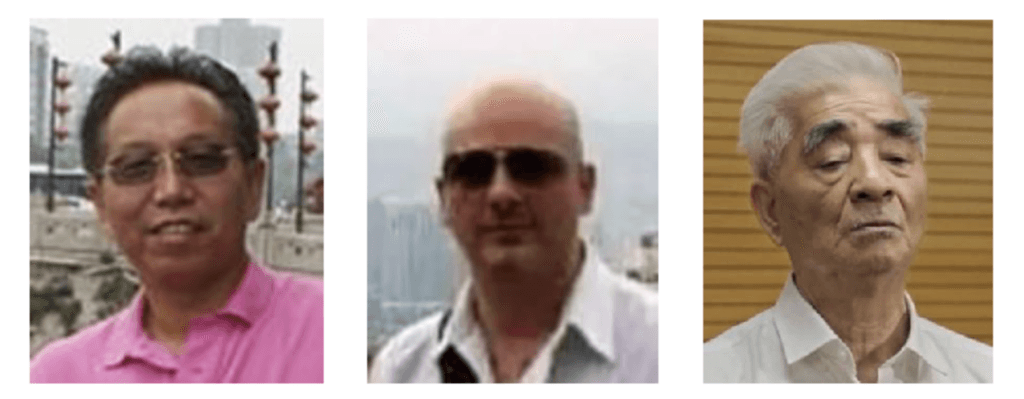
Such a prisoner swap is unprecedented for China. In return, the US released three Chinese nationals, two of whom were convicted of espionage. Although details of what the US offered in return remain murky, the US Department of State on November 27 lowered the China travel advisory to Level 2: “Exercise increased caution.” China has seen a sharp drop in visits by foreigners in recent years and is eager for a revival. In 2024, China started to unitarily offer visa-free entry for several western countries and its Asian neighbors.
Dui Hua had tirelessly advocated for Swidan and Li and raised their cases to the Chinese government directly as well as through interlocutors. Dui Hua had put Swidan on 54 lists since 2016 and Li on 45 lists since 2017.
A US National Security Council spokesperson told media on November 28 that “… all of the wrongfully detained Americans in the PRC are home.” However, Dui Hua estimates that more than 200 Americans are under coercive measures in China and very few details are known. There are also many more under exit bans, such as American businessman Henry Cai, who has been prevented from returning to the US since 2017.
The swap did not appear to have hit a pause on the continued downward spiral for Sino-US relationship. Just on December 2, the US added another 140 companies to a trade restriction list, including Chinese semiconductor toolmaking and software firms. The next day, China banned exports of key minerals to the US.
A Kettle of Hawks

Donald Trump’s sweeping victory on November 5, 2024—he won the electoral college, the popular vote, flipped the Senate, and maintained the GOP’s slim majority in the House of Representatives—has earned him the nickname “The Disruptor.” The name is apt for foreign relations in general, and for US ties with China in particular. Relations between the two countries will be dangerously tense in 2025, the first full year of Trump’s second presidency.
During the 2024 campaign, Trump and his allies laid out their approach to dealing with China. Taken together, the policies the Trump administration intends pursuing portend a period of confrontation and unbridled rivalry between the world’s two largest economies, both of whom are nuclear states with large standing armies.
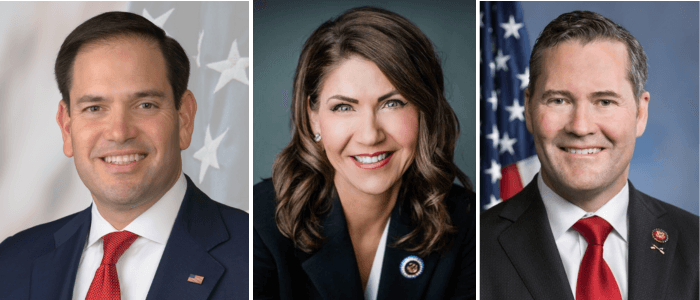
To carry out this confrontational policy, Trump is assembling a kettle of hawks. Marco Rubio, his choice for Secretary of State, has been sharply critical of Xi Jinping’s China, especially its record on human rights and rule of law (Senator Rubio’s family fled Cuba and he is irreconcilably anti-Communism.) Rubio would be the first Secretary of State to be subject to travel restrictions in China.
Governor Kristi Noem, Trump’s choice for Secretary of Homeland Security, has been strongly opposed to Chinese purchases of farmland and investments in key industries in the US, deeming them threats to national security.
Representative Mike Waltz, Trump’s pick for National Security Advisor, despises Iran and opposes China’s backing of Iran and its proxies. He supports a US push back against Chinese aggression in the South China Sea.

Howard Lutnick, Trump’s pick for Commerce Secretary is a big believer in using tariffs to address trade misbehavior by China. He will oversee the Office of US Trade Representative which, in Trump’s first term, launched and oversaw the trade war with China. Lutnick, as CEO of the Wall Street firm Cantor Fitzerald, has a history of promoting investments in China.
Scott Bessent, Trump’s choice for Treasury Secretary, is another believer in tariffs to replenish the treasury and reinforce negotiating positions. His nomination is welcomed by Wall Street, but as with Lutnick, some have expressed concerns about their investment connections with China.
Another Trump loyalist, Peter Navarro, has been tapped as senior counselor for trade and manufacturing to the White House, a role that largely reprises his former position as the Director of US Office Trade and Manufacturing during Trump’s first term. Navarro is infamous for his staunch views on trade with China, advocating for national security tariffs on aluminum and steel.
Trump rounded out his new trade team with the nomination of Jamieson Greer as the US Trade Representative (USTR). Greer is a trade lawyer and served as the chief of staff to USTR during Trump’s first term. His appointment is largely interpreted as the sweeping tariff agenda against foes and allies alike will be carried out as promised.
A possible counterweight to the China hawks is Elon Musk, Trump’s billionaire supporter. He has been tapped to head the Department of Government Efficiency which will reduce regulations and cut budgets by two trillion dollars. Musk manufactures half of his Tesla EVs in China and has met with Xi Jinping on several occasions.
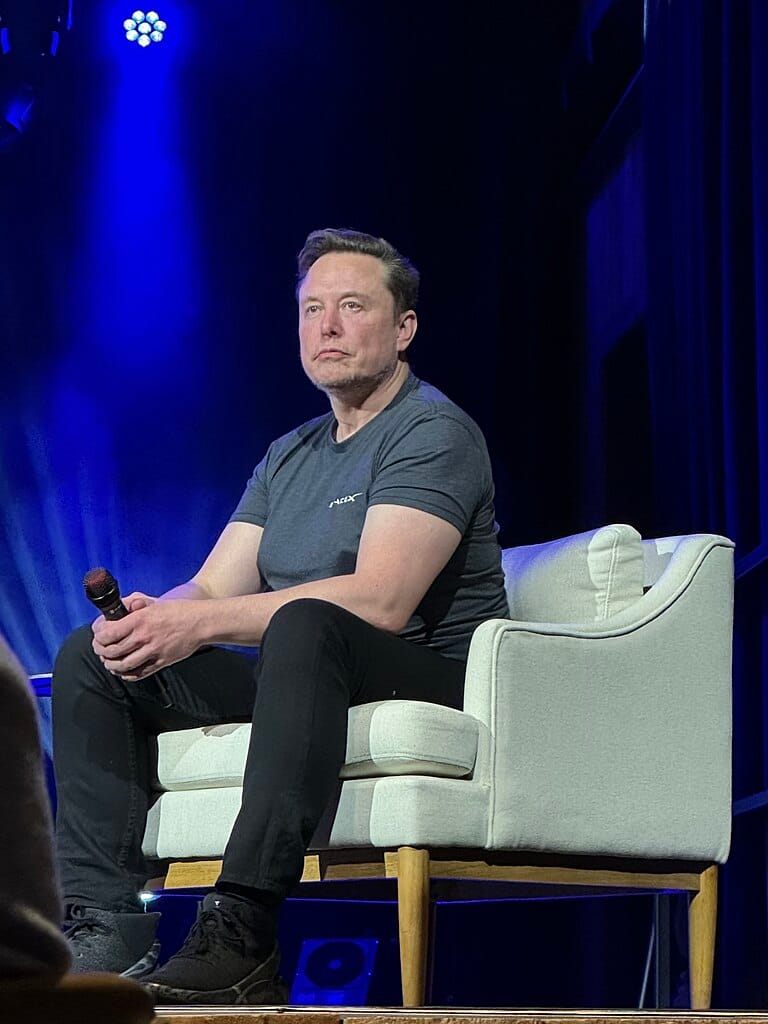
Another nomination is Adam Boehler as the Special Presidential Envoy for Hostage Affairs, to replace Roger Carstens. The announcement came as a shock to many, since Carstens was appointed by Trump and has been credited for the successful return of Americans imprisoned overseas. Boehler, a healthcare investment firm executive, is another veteran from Trump’s first term and is given credit by Trump for negotiating the Abraham Accords. Will US citizens under coercive measures in China remain a priority for the incoming administration? Will Boehler’s close friendship with Kushner, Trump’s son-in-law, make him more effective in negotiating the releases of Americans wrongfully detained overseas? Time will tell.
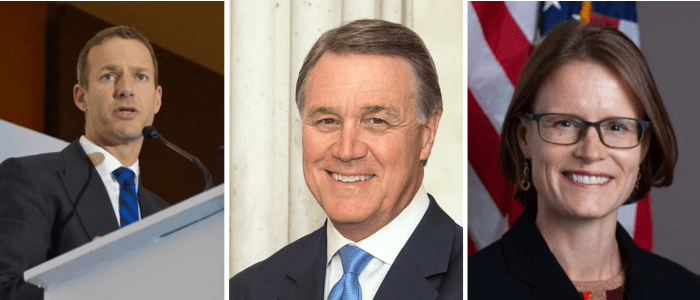
Trump has enlisted a former businessman with experience dealing with China for the incoming administration’s key diplomatic post. Former Republican Senator David Perdue has been nominated as the US ambassador to China. Trump highlighted Perdue’s years of experience conducting business in Asia as key to implementing his “strategy to maintain peace in the region, and a productive working relationship with China’s leaders.”
Before turning to politics, Perdue worked in the textile industry in the 1990’s, sourcing supplies and cheap labor in Hong Kong and China for US firms. During Trump’s first trade war, then Senator Perdue offered an olive branch to then China’s chief trade negotiator, Vice Premier Liu He, writing in an opinion piece that “cooperation is our ultimate goal” and that US and China should “[avoid] future hostility.” Perdue might not be another obvious counterweight to the hawks, however. During his later tenure in the Senate, he took on a tougher position on threats posed by Russia and China and visited Taiwan in 2018. The nomination was cautiously welcomed by the business community, which hopes that the future ambassador will provide much-needed balance to the president-elect’s unpredictability.
While Perdue’s nomination awaits Senate approval, the post of ambassador might be vacant for a period of time. Typically, the deputy chief of mission (DCM) takes over as the main diplomat. Sarah Beran, a Senior Director on the National Security Council (China), will take office as DCM in Beijing prior to Ambassador Nicholas Burns’ departure. Beran is a career foreign service officer and once served as the Director of the Office of Chinese and Mongolian Affairs at the State Department’s Bureau of East Asian and Pacific Affairs.
Here are some things to watch for:
Trade: Trump has repeatedly threatened to revoke China’s Permanent Trade Relations (PNTR, formerly known as Most Favored Nation trade status). He has also advocated further hiking tariffs on Chinese goods up to as much as 100 percent. He will discourage US investment in China, contributing to what has been already a sharp drop in foreign direct investment in 2024 YTD.
Technology and Supply Chain: Trump will keep curbs put in place during the Biden administration and will likely expand them. He will continue the Biden policy of discouraging countries from selling advanced technology, especially chip making technology, to China. He will push forward with efforts to protect intellectual property.
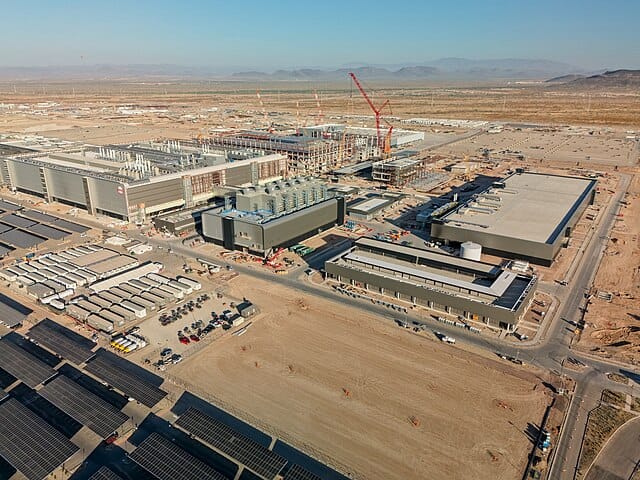
Image: Wikimedia Commons.
A priority for the new administration will be reducing reliance on China by shortening the supply chain by means of manufacturing and mining critical materials like rare earths closer to home.

The Trump administration will also slow-walk approval of the Science and Technology Agreement (STA), which expired in August 2024. Both PNTR and STA were mutually granted in 1979 and together form the foundation of US-China relations.
Fentanyl: The Biden administration made some progress on getting Beijing’s cooperation in shutting down the manufacture of fentanyl precursors. The incoming Trump administration will seek to continue and deepen cooperation with China in this area.
Sanctions: More than 300 Chinese entities and individuals, including those in Hong Kong, have been sanctioned for different reasons. On November 25, the Biden administration sanctioned more than two dozen Chinese companies that allegedly use forced labor in Xinjiang, the largest ever expansion of the ban.
This list will be expanded during the Trump administration.
Border Security: During the last year of the Biden administration, the US deported three plane loads of Chinese nationals to China. The number of those sent back will likely surge during the early months of the Trump administration. The administration will focus on men of military service age. They are viewed as potential threats to national security.
Embed from Getty ImagesCovid: Trump will continue to blame China for “releasing” Covid to the world thereby causing the deaths of over a million Americans. On December 3, the House Oversight Committee released a 520-page report on the origins of the Covid pandemic. The report blamed the virus on a leak from a Wuhan bio lab.
Hong Kong: Reflecting Trump’s long-standing enmity towards Hong Kong businesspeople, Trump will no longer criticize China’s treatment of Hong Kong. He will not likely intervene on behalf of Hong Kong political prisoners, although during the campaign, he singled out Jimmy Lai as a candidate for release.
In line with lowering the travel advisory for China, the Biden administration also lowered the travel advisory for Hong Kong. It kept the travel advisory for Macau at Level 3, “Reconsider Travel”, because consular access to US citizens in custody remains difficult.
Embed from Getty ImagesTaiwan: Trump has complained that Taiwan is not paying for the weapons sent to Taiwan – in fact they are – and has implied that the US won’t defend Taiwan if China attacks. Trump has announced that he will not put Mike Pompeo – one of Taiwan’s strongest supporters – in his cabinet.
Human Rights: An early casualty of Elon Musk’s cost cutting measures might be the Department of State’s Department of Human Rights, Democracy, and Labor (DRL). The bureau’s influence has declined markedly in recent years. The Biden administration didn’t even name an assistant secretary to lead the DRL until the summer of 2024. The annual report on China’s human rights practices will be trimmed to a much shorter document. In Trump’s first term of office, the US quit the United Nations Human Rights Council. Mr. Biden’s State Department decided not to seek re-election to the council in September 2024. Trump is unlikely to seek re-election until 2028, if at all.
PUBLICATION HIGHLIGHTS
JOHN KAMM REMEMBERS
From John Kamm Remembers, a series written by Dui Hua’s founder recounting his advocacy for prisoners in China.
Zhang Lin: Trials and Tribulations
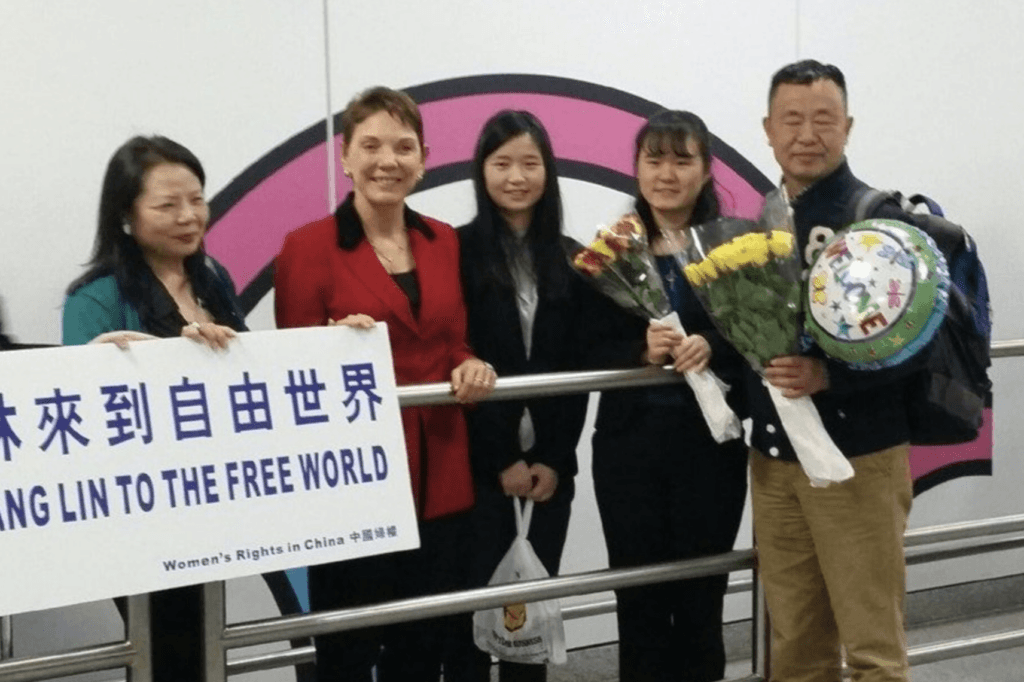
The latest JKR looks back on how John Kamm first encountered Zhang Lin’s case and provides a portrait of Zhang Lin’s steadfast fight for political reform in China – a struggle sparked during the protests of 1989. Read more
DRAGON YEARS: REMEMBRANCE OF TIMES PAST PODCAST SERIES

Listen to Dragon Years, our limited podcast series exploring key periods of US-China relations and Executive Director John Kamm’s advocacy work. Dragon Years is part of our Encounters with China podcast where John shares stories from his experience working with China and discusses current events with distinguished guests.
PRESS STATEMENT
Dui Hua Welcomes the Release of US Citizens Including Swidan and Li
This is a great relief for their families, members of whom have advocated forcefully on their behalf for years. It is a testimony to the efforts of American diplomats, and to sympathetic Chinese officials who have met with them. Read press statement
ANNUAL REPORT 2023
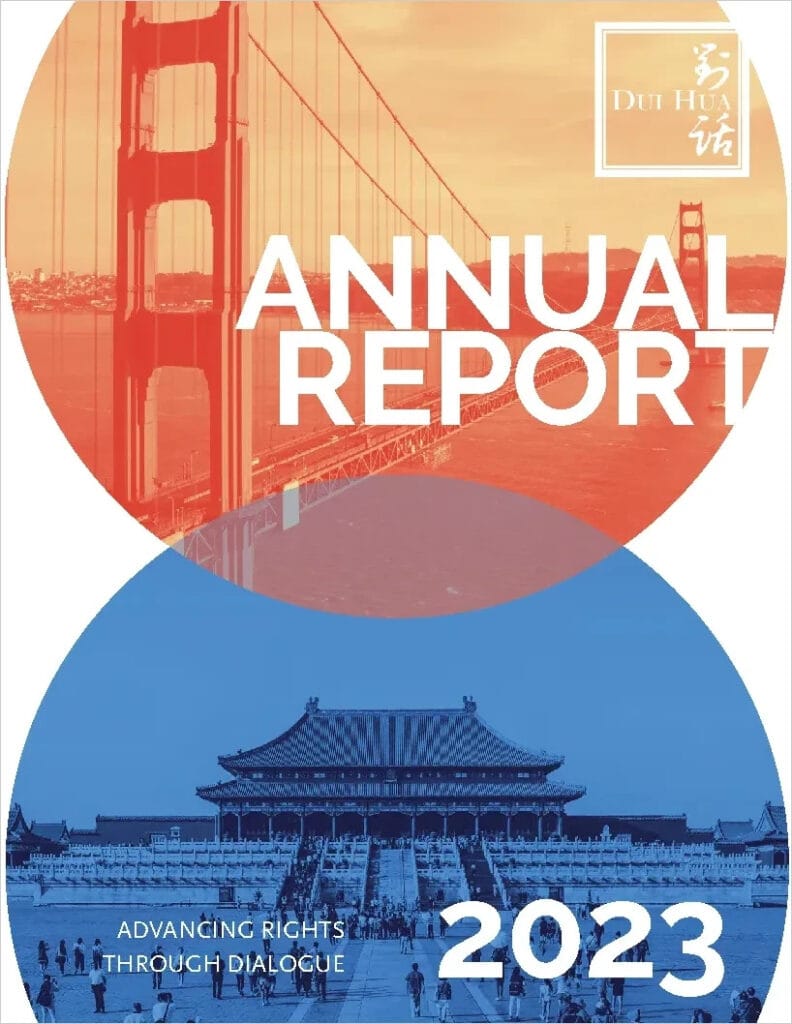
In 2023, Dui Hua saw both the challenges and significant achievements in our mission to advocate for at-risk detainees in China and engage in well-informed, mutually respectful dialogue. Read the report
PRISONER UPDATES
Dui Hua’s Prisoner Updates provide the latest information uncovered through research and direct dialogue with the Chinese government.
- Dui Hua uncovered information that Guo Ran, the co-founder of a political party in Shaanxi, likely has received his second sentence reduction.
- Activist Yang Zewei has been sentenced to five years in Hengyang for inciting subversion.
- Human rights lawyer Lu Siwei was formally arrested by Chengdu police for illegal border crossing, more than a year after he was repatriated from Laos to China.
- A Falun Gong practitioner in Guangdong received a second sentence reduction.
- The appeal trial for Ruan Xiaohuan, the author behind the well-known blog who was convicted of incitement, has been postponed again.
Subscribe here to receive Dui Hua publications by email.
